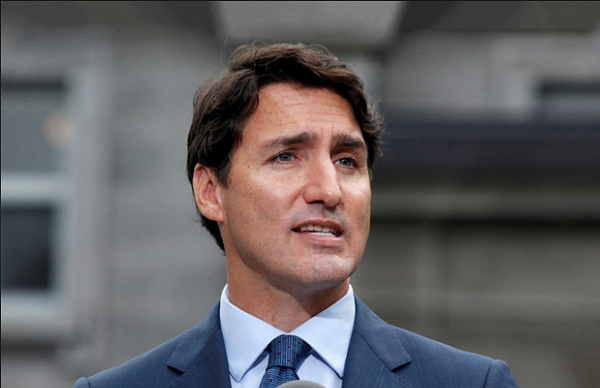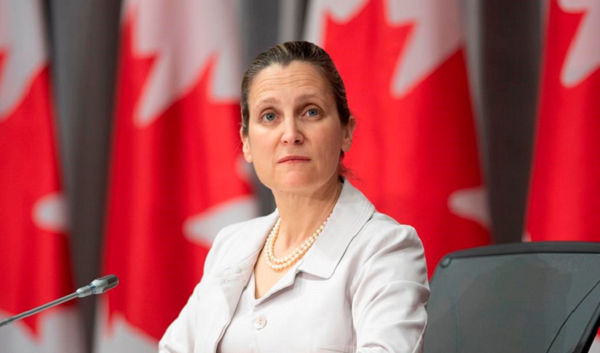In a bid to remake how children are taught in school, Israel plans to change Palestinian education
Israeli Prime Minister Benjamin Netanyahu has promised “total victory” in Gaza. But his government’s objectives go beyond vanquishing Hamas: Israeli leaders are also determined to remake how children in the region are taught.
Textbooks in Gaza have long been an existential touchstone, praised by Palestinian leaders for their role in preserving identity, but faulted in Israel for inculcating hatred toward Jews.
The desire by Israeli leadership to make deradicalization an objective of its war has brought the matter to the fore like never before – and with it the difficult questions about governing a region whose leaders see no reason to change what children learn.
“It’s the vast, vast majority of Palestinians who actively support terrorism,” said Ohad Tal, pointing to textbooks that he claims promote antisemitism. And that “comes from education. You cannot ignore it.”
Mr. Tal, a member of a far-right party led by Finance Minister Bezalel Smotrich, views the overhaul of the Palestinian education system as a fundamental imperative for Israel in its war in Gaza.
Support for that idea comes from across the Israeli political spectrum – and from around the world. The European Parliament, for example, has demanded that its education funding not be used to support Palestinian education materials with violent imagery. Mr. Netanyahu declared last year that “Palestinian civil society needs to be transformed so that its people support fighting terrorism rather than funding it.”
Palestinians, however, see the demand for such change as a call for cultural erasure.
Let Israel dictate learning in Gaza and “anything that relates to the Palestinian identity will be deleted,” warned Abdel Hakeem Abu Jamous, a curriculum development leader with the Palestinian Ministry of Education.
Yossi Belien, a key negotiator of the Oslo Accords, said the content taught in Palestinian schools “is very important. Even in mathematics, you can find questions about, ‘how many Jews did you kill?’” But Israeli schools, too, can promote hatred toward Palestinians, he said. “What you have to do is to fight it – and education is the most important arena where you have to fight it.”
Work has already begun in Israel to rewrite Palestinian textbooks, said Marcus Sheff, the chief executive of The Institute for Monitoring Peace and Cultural Tolerance in School Education, a research and policy group with offices in Israel and the U.K.
“One cannot imagine a world” where the system of education in Gaza continues he said, suggesting international organizations still have time to be given oversight of education for the next school year. Textbooks, he said, “are remarkably powerful in producing societies of the future that are peaceful and tolerant.” Changing what children learn in Gaza “is doable. It is not complicated. It is a matter of will.”
Among Palestinians, however, there is little obvious sign of any will to alter a curriculum overseen by the Palestinian Authority, which produces textbooks used by students in East Jerusalem, the West Bank, Jordan, Syria and Gaza.
Changes were made to the curriculum in 2020, in part to respond to criticism of what children were learning. No further amendments are underway, said Ihab Shukri, who leads development of scientific curriculum at the Palestinian Ministry of Education.
Critics say “we teach hate. No, we don’t,” Mr. Shukri said.
But, he then adds, Palestinians children should be taught to hate those who “occupied our land.” That is different from antisemitism, he argued. “We hate anyone who wants to kill me or destroy my land. I want them to hate.”
Textbooks “communicate the genuine Palestinian narrative,” said Mr. Abu Jamous, his colleague at the Ministry of Education.
To make the point, he holds up two copies of an Arabic studies textbook, one distributed by the Palestinian Authority, another adapted by an Israeli school district.
The books themselves have obvious visual differences. The distinctive design of the Palestinian keffiyeh is missing from the cover of the Israeli version. Inside, Palestinian symbols like the the flag and Al-Aqsa Mosque are missing, too. Some of the content is changed, too: a text about the Palestinian homeland has been replaced by a story about a bunny rabbit.
Schools are only partly responsible for a child’s learning, Mr. Abu Jamous said, and Israel has already play a considerable role in educating young Palestinians, although not toward the path of deradicalization.
“It is Israel that teaches our children to hate,” he said. “The curriculum of hatred is taught in Gaza by the Israeli army every day.”
Israel’s war on Gaza has done great damage to schools, many of them run by United Nations Relief and Works Agency for Palestine Refugees in the Near East, which is better known as UNRWA. Since the start of the war, 160 of UNRWA’s educational facilities have sustained damage, and more than 100 teachers killed.
Restoring the education system will cost over US$1-billion, said Julia Dicum, a former Canadian diplomat who is now director of education at UNRWA.
She argues that doing so is an imperative, pointing to a human rights course at UNWRA schools that teaches tolerance. “Education can be part of the solution, to ensure that children are not being radicalized,” she said.
Failing to provide safe school environments threatens to turn Gaza into a kind of “Somalia at the backyard of Israel,” warns Juliette Touma, who leads communications for UNRWA.
But in Israel, many say education in Gaza must change.
Donniel Hartman, a rabbi who is president of the Shalom Hartman Institute, a centre for Jewish thought, likens children in the region to hostage victims, taken captive by a dictatorship of indoctrination. That can no longer remain, he said.
“It’s basically saying to Palestinians: ‘you can’t help yourself any more, and we’re not waiting,’” Mr. Hartman said. He acknowledges the potential problems with forcible change, but says it is more important to shift Gaza away from demonization of Jews.
“Of course it’s troubling,” he said. “But it will work, if it has sufficient power.”
Yuli Tamir, a scholar and former cabinet minister who is president of Beit Berl College, said changes to schools can only succeed if they comes with much broader social and political change.
Ms. Tamir, who was Israel’s education minister from 2006 to 2009, provoked an outcry when as part of an effort to teach Israeli students about Palestinian history she reintroduced to textbooks a mention of the nakba – when Israeli forces drove hundreds of thousands of Palestinians from their homes 1948 – and a map containing the green line, the pre-1967 borders of Israel.
It was a “mild change,” Ms. Tamir said, designed to foster understanding. It didn’t last long. “They took it out immediately when I left.”
By the same token, she said, teachers in Gaza should not be held uniquely responsible for fighting antisemitism when “the whole system hates Jews – the parents, the authorities, the health care,” she said.
It takes a change in governing priorities, she said, for education to successfully shift course.
“Curriculum is a representation of the state,” she said. “More than a flag. Or an anthem. This is what you tell your children you are all about.”
This article was first reported by The Globe and Mail













